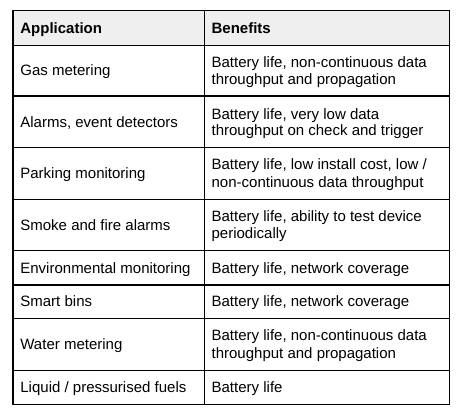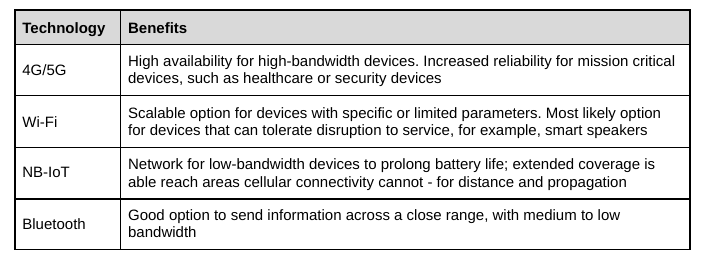Vodafone UK has restated its commitment to NB-IoT and doubled the number of sites in its narrowband IoT (NB-IoT) network to meet increasing demand for IoT services, it says. The firm claims its NB-IoT network in the UK now covers 98 percent of the UK geography, and, as a complement to its standard cellular connectivity, gives UK enterprises the “right tools for the right job”.
Vodafone said there is increased demand across numerous industries for low-power wide-area (LPWA) connectivity to support use cases such as industrial and commercial metering, water monitoring, asset tracking, and smart city applications, including air quality monitoring. It cited major NB-IoT contracts in the UK with SES Water and United Utilities to detect leaks in underground pipes and other infrastructure.
It said its NB-IoT network goes beyond 98 percent of the UK landmass for indoor and outdoor use cases where lower signal is sufficient (-128dBm), and reaches around 87 percent geographical coverage where a stronger signal (-118dBm) is required. It said it will upgrade and add infrastructure case-by-case for any customers that are not already covered.
The UK-based operator took the opportunity to restate the benefits of NB-IoT for low-power sensor solutions, as compared to traditional 2G-through-5G cellular, listing: (extendable) battery life “as long as 10 years”; reduced device costs; scalable and affordable deployments; remote maintenance; and of course low-power data transmissions.
 The company is pitching NB-IoT with its IoT.nxt data management platform, and as a complement to standard cellular support for enterprise IoT, as well as general enterprise mobility. “With an NB-IoT offering complementing existing mobile coverage, Vodafone can create tailored connectivity solutions for different IoT cases, rather than relying on a ‘one size fits all’ approach,” it said in a press statement.
The company is pitching NB-IoT with its IoT.nxt data management platform, and as a complement to standard cellular support for enterprise IoT, as well as general enterprise mobility. “With an NB-IoT offering complementing existing mobile coverage, Vodafone can create tailored connectivity solutions for different IoT cases, rather than relying on a ‘one size fits all’ approach,” it said in a press statement.
It stated: “The IoT platform is hosted in Vodafone’s secure environment and can be refined for each use case or customer, making IoT more accessible to more companies. Like Vodafone’s investments in multi-access edge compute (MEC), standalone 5G, and partner ecosystems, investments in IoT enable Vodafone to bring customers new connectivity solutions.”
The company issued a handy operator-view of suitable IoT apps with its press release, along with a simplified view of available connectivity technologies in the IoT space (see above and below).
Anne Sheehan, business director at Vodafone UK, said: “NB-IoT is a part of our network that is often overlooked, but it is becoming increasingly important, bringing data from a growing variety of devices to power decision-making in more organisations. This is a network which has been designed for low-bandwidth devices, allowing for coverage that goes beyond 4G, and devices where battery life could be extended to as long as ten years.
“In IoT, customers might want to use our 4G network for real-time, data-intensive analytics, while others might need a connectivity solution for non-time sensitive use cases, such as environmental monitoring. We have invested in NB-IoT because we want to offer our customers the right tools for the right job, in a way which is affordable and accessible for every customer.”


